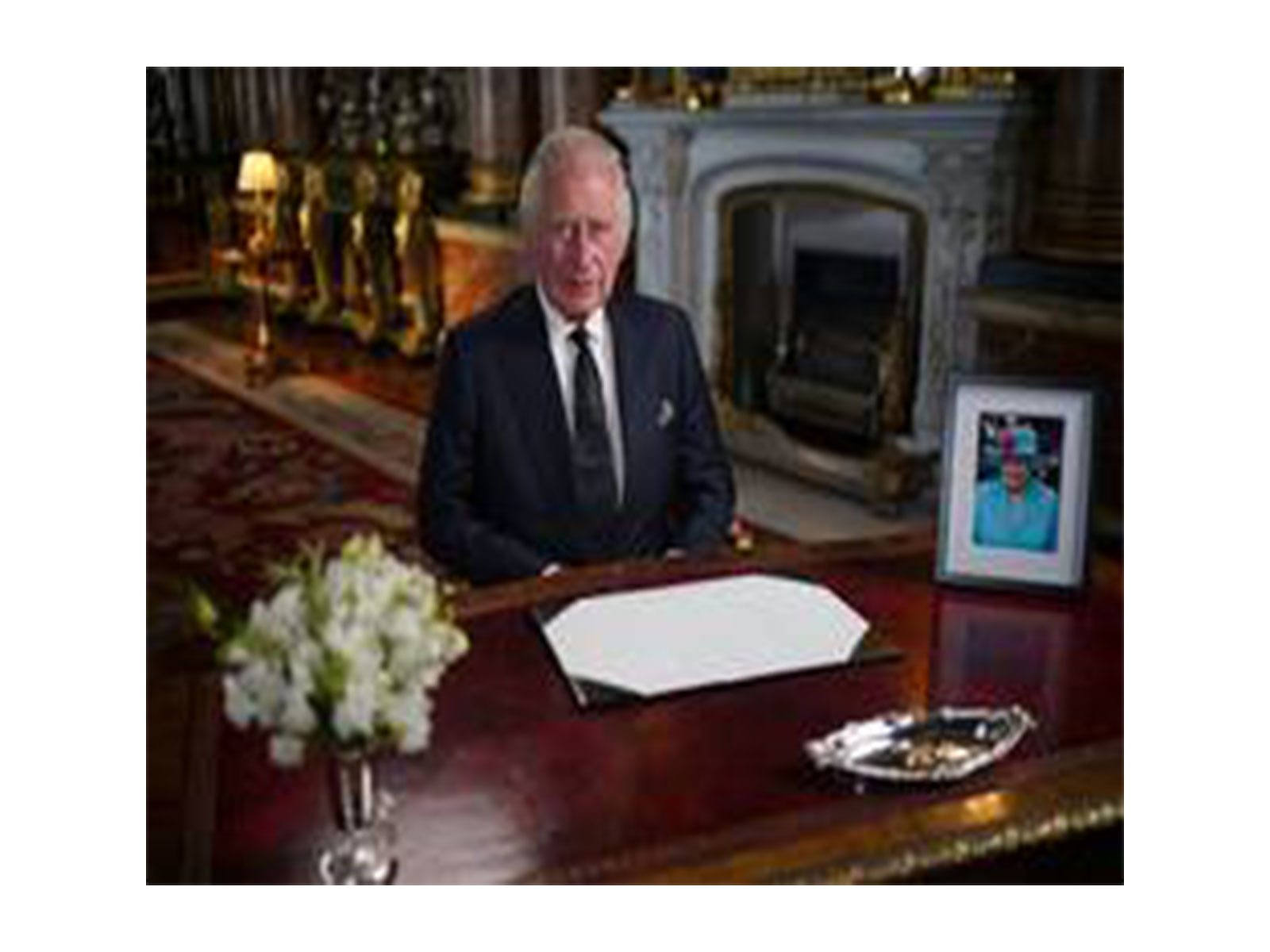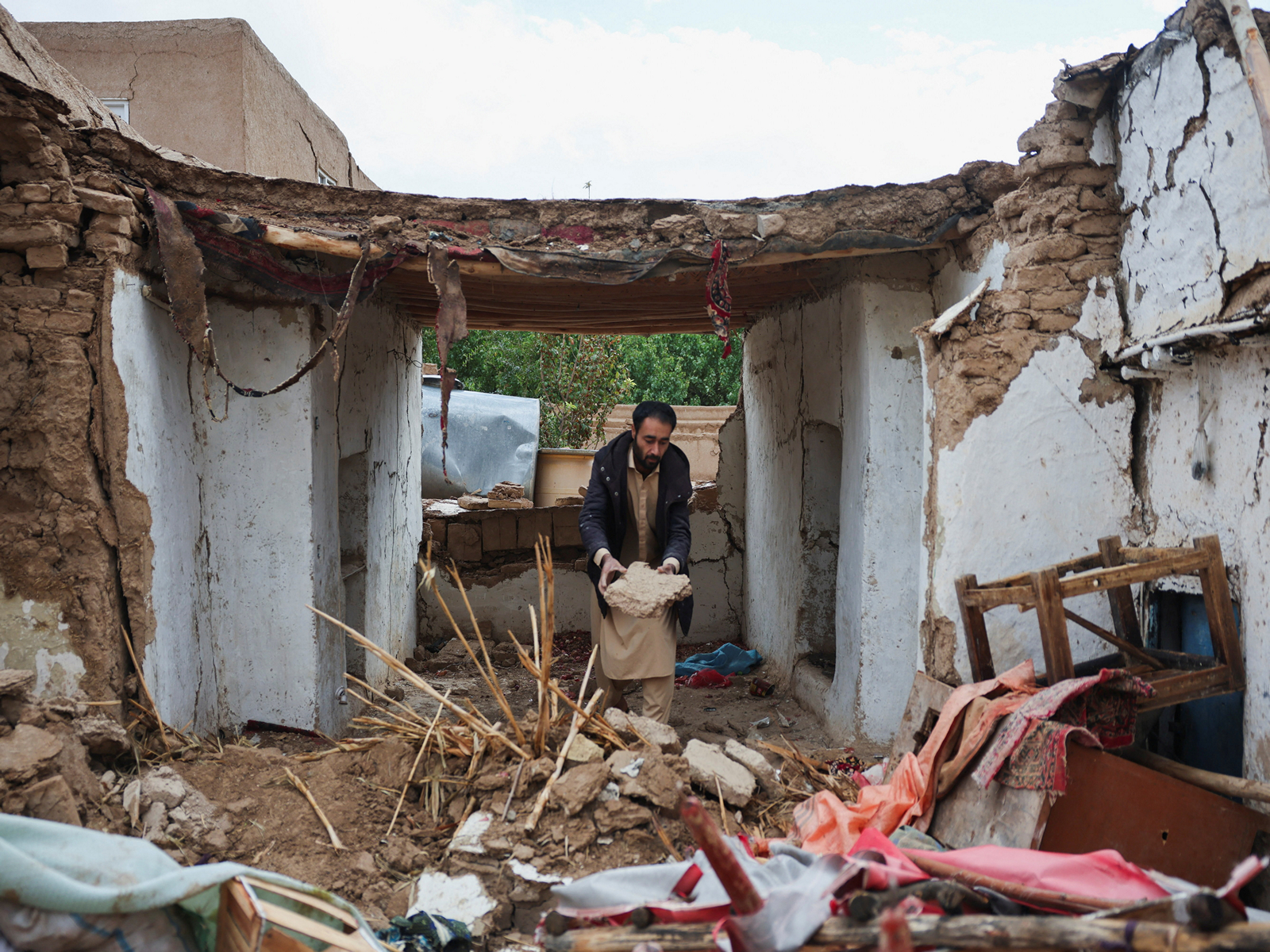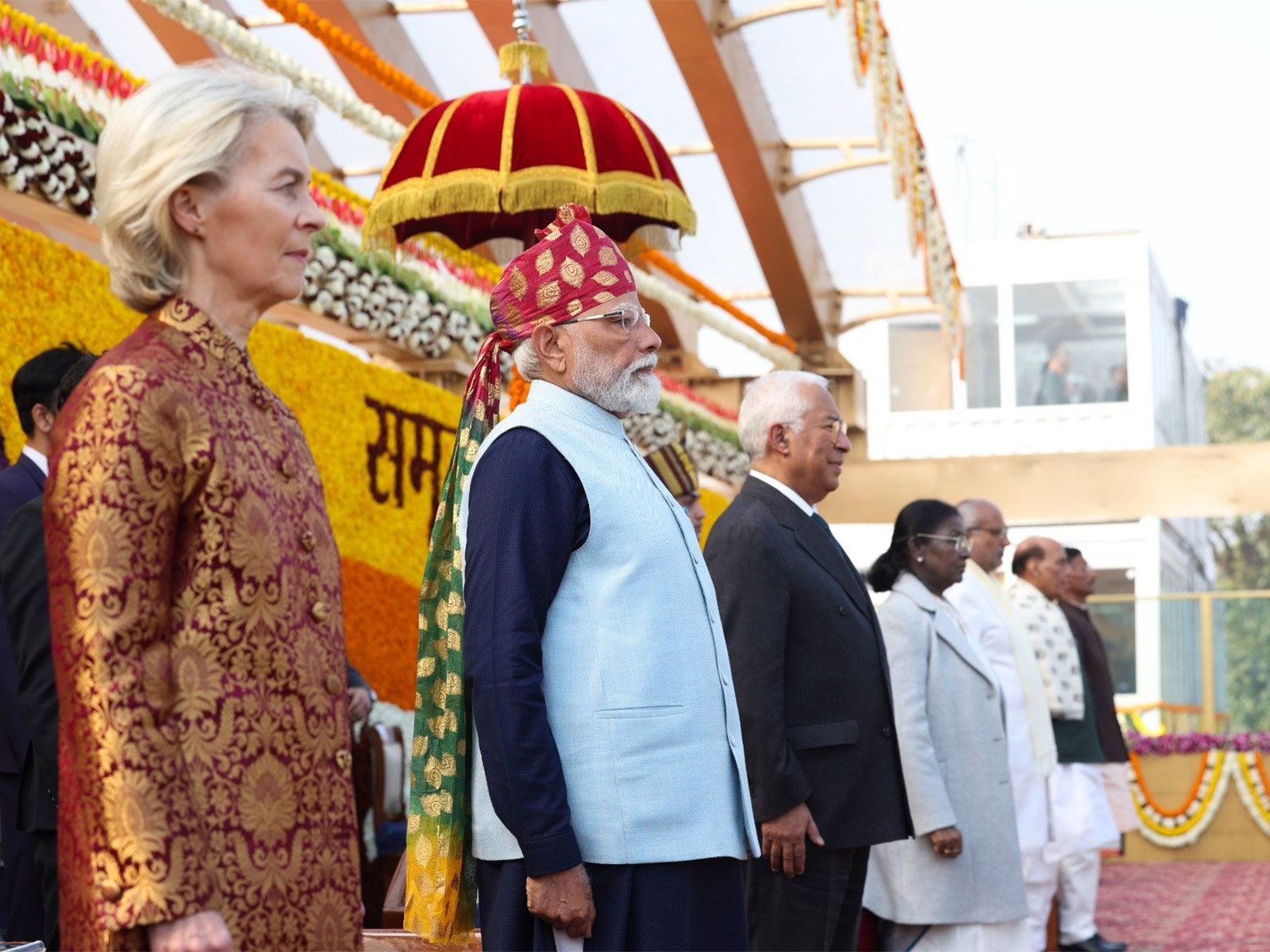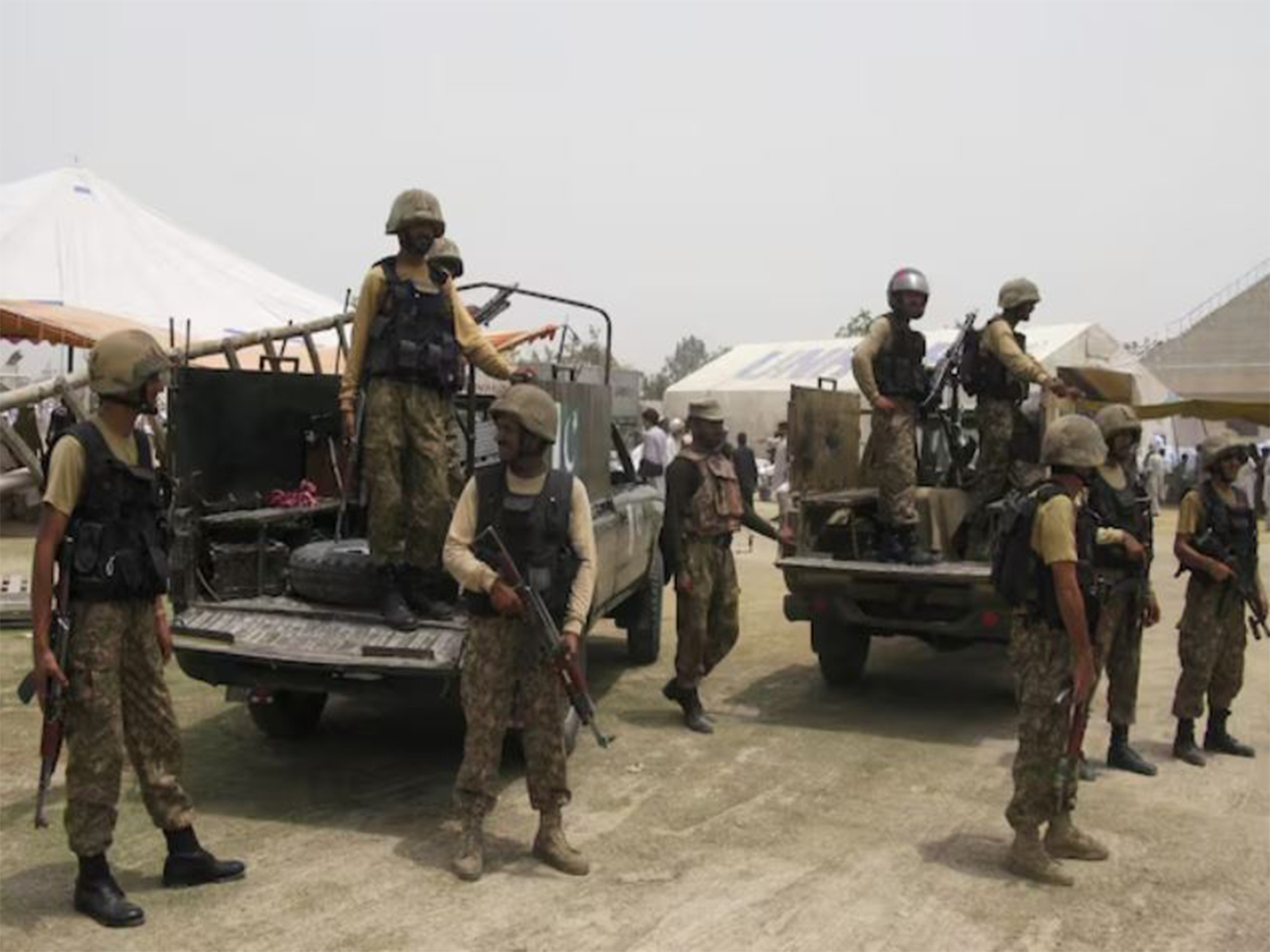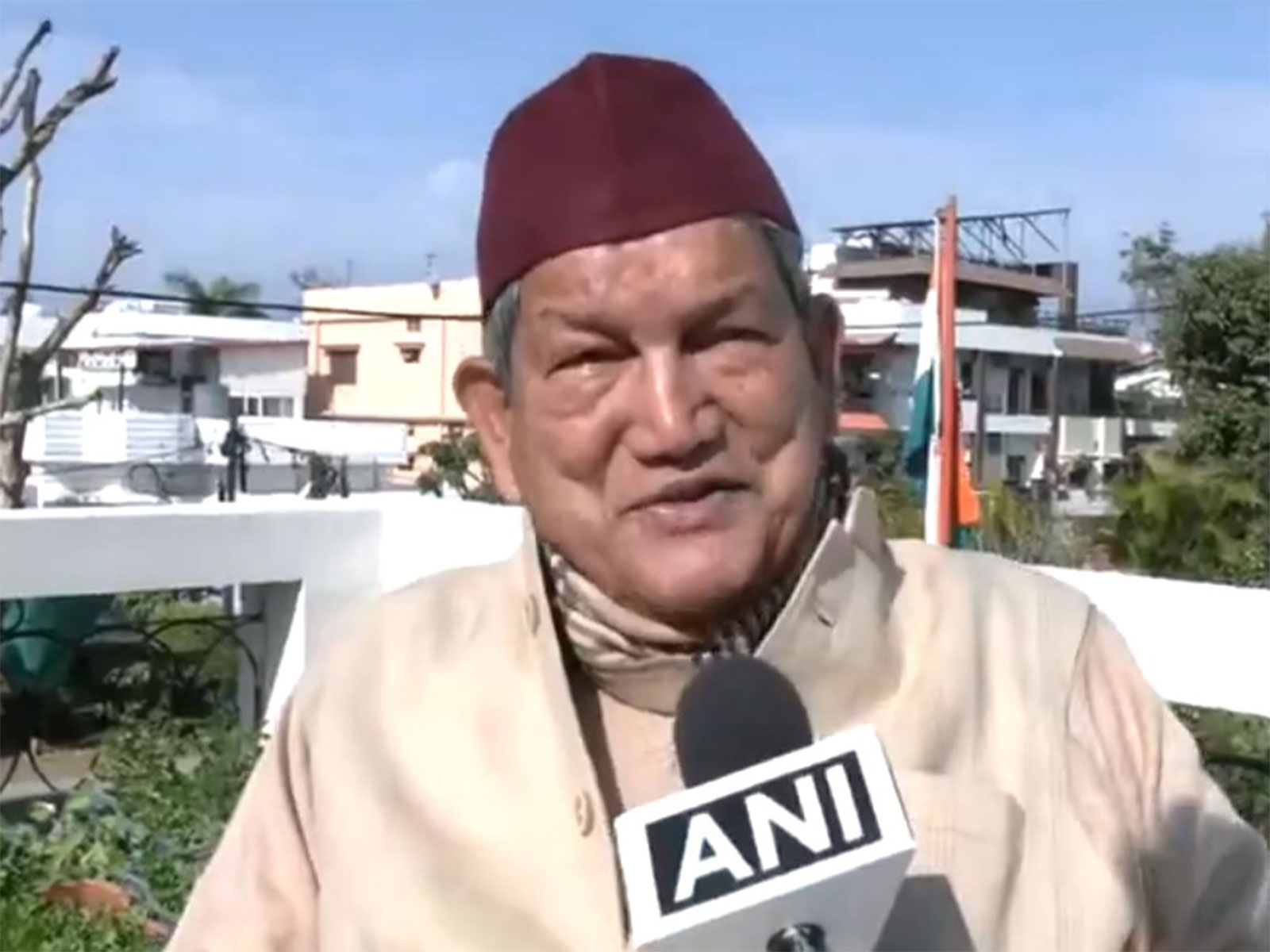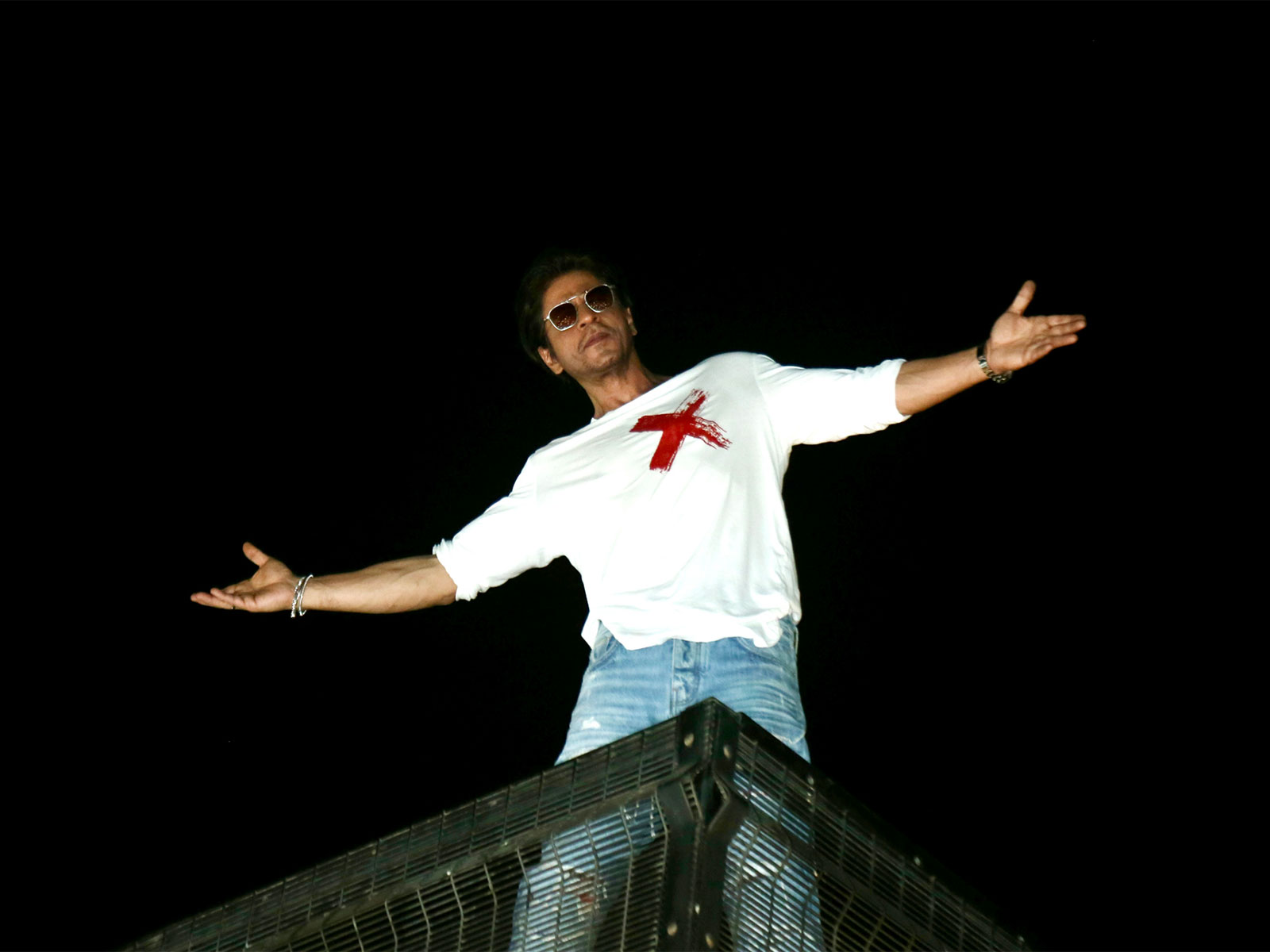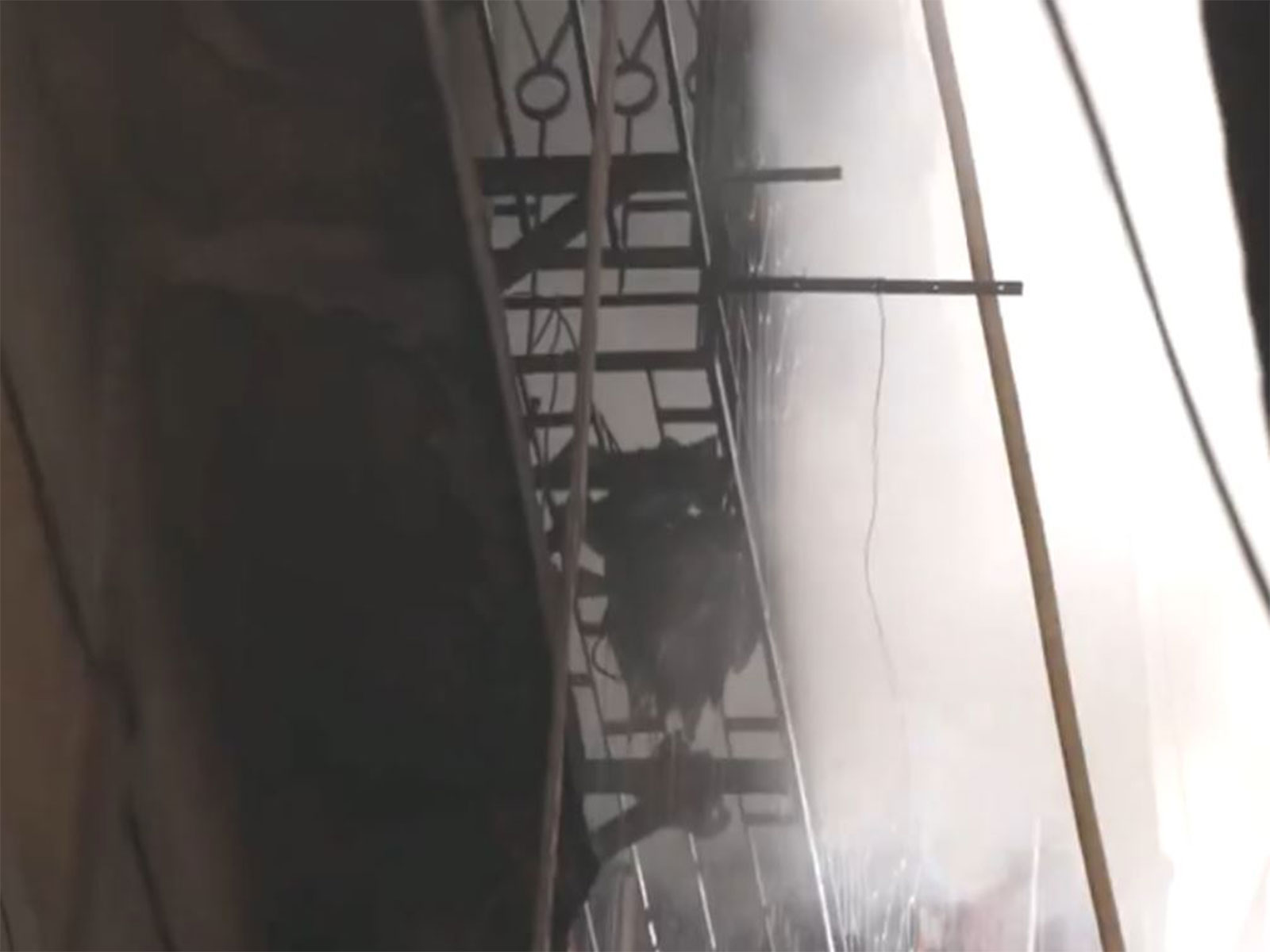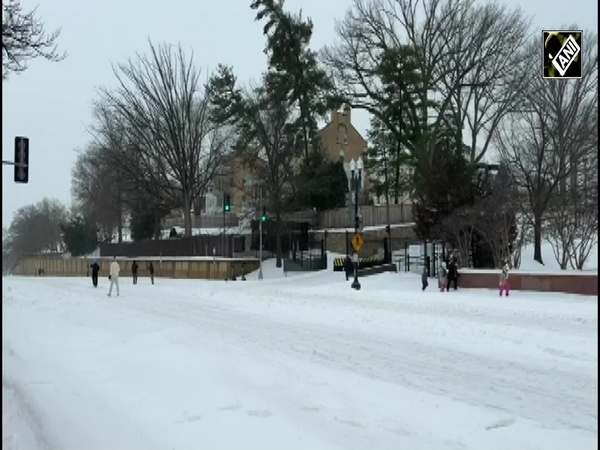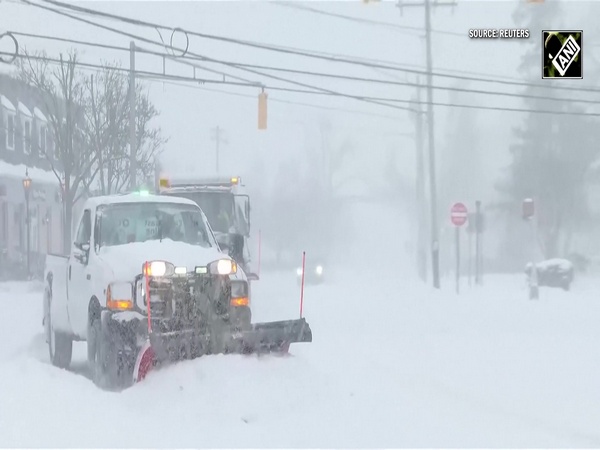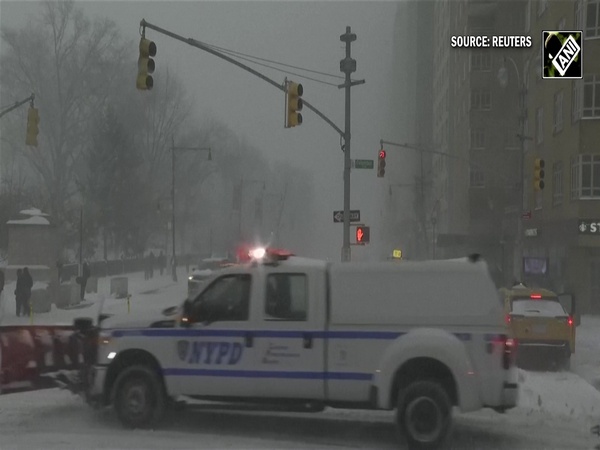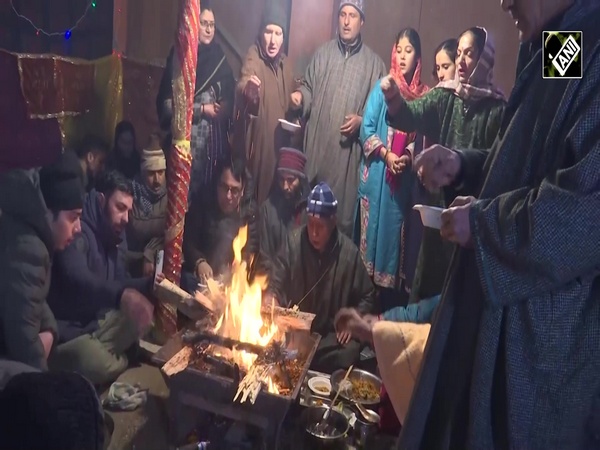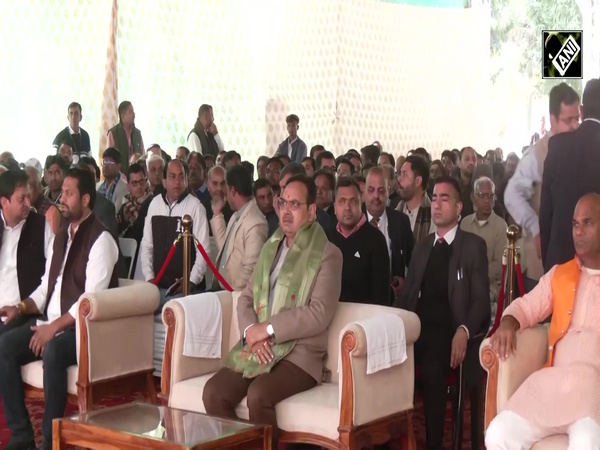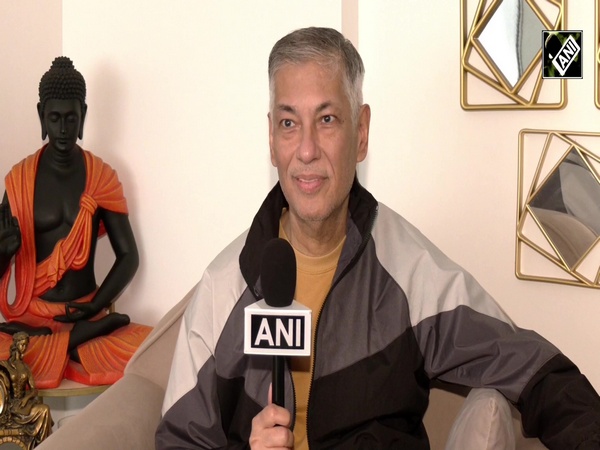PLA will take lessons from Ukraine war
Mar 21, 2022

Hong Kong, March 21 : China has had its eye on Taiwan for far longer than President Vladimir Putin's malicious intentions for Ukraine. In fact, Putin's recent invasion showed that a Chinese attack on Taiwan may not just be hypothetical either, although there are many lessons that China needs to dissect and digest from Russia's messy invasion first.
As local residents became jittery, Taiwanese officials vehemently reject the "Today Ukraine, tomorrow Taiwan" catchphrase. For years, the Taiwanese populace has been apathetic to the possibility of a Chinese invasion, but that has noticeably changed as Chairman Xi Jinping upped the tempo of provocative coercion.
The danger of an imminent People's Liberation Army (PLA) invasion is negligible right now, but that will change as China continues to strengthen its military vis-a-vis the USA and Taiwan.
Professor Akio Takahara at the Graduate School of Law and Politics, University of Tokyo told an audience in a webinar hosted by the German Marshall Fund: "I think the Chinese are observing very carefully many things about this war in Ukraine...for example, the way of fighting, what sort of weapons are useful and effective, why are the Russians not successful, what's working for the Ukrainian army. All these military aspects of the war are certainly of close concern and observation by the Chinese side. But also the economic impact of it, the sanctions that are being imposed on Russia."
Takahara continued: "At the moment, I think the major Taiwan policy is not the use of force, but rather the non-military means of infiltration and the Sun Tzu art of war - winning without actual fighting - so that's going to continue. But at the same time, all these observations and studying is done by the Chinese side."
What are the similarities between Ukraine and Taiwan? Obvious are China's territorial claims over Taiwan. Xi, following his Chinese Communist Party (CCP) predecessors, has not discounted the use of military force to forcibly reunite Taiwan. Like Ukraine with NATO, Beijing lists growing Taiwan-USA ties as a provocation.
As with Ukraine, Taiwan lives under the dark shadow of an authoritarian neighbor. President Tsai Ying-wen said in late January, "Taiwan has been facing military threats and intimidation from China for a long time. Therefore, we empathize with Ukraine's situation..."
Certainly, Taiwan's sovereign status is not as clear as Ukraine's. Taiwan is not recognized by the United Nations, for example. Nonetheless, despite a lack of diplomatic recognition, nearly all recognize that Taiwan is a self-governed, independent country.
The Ukraine war reminds us that deterrence failed, and the threat of sanctions was inadequate at stopping Putin's personal regime. China, too, is ruled by a ruthless autocrat. Western assumptions that China would balance the pros and cons need to be reexamined, as dictators surrounded by sycophants may be unpredictable.
There are significant differences between Kyiv's and Taipei's plights, however. Taiwan is important to the USA as its ninth-largest trading partner, compared to Ukraine's 67th place. Nor does the USA have a defense pact with Ukraine, whereas its relationship with Taipei is predicated upon the Taiwan Relations Act 1979.
Taiwan's geographical position is critical too, especially as the USA has declared China its greatest strategic competitor. It is a link in the so-called First Island Chain, and nearby Japan and South Korea (treaty allies of the USA) would not want to see Taiwan fall to China, as this would interdict their sea lines of communication to the rest of the world. Thus, Ian Easton, senior director of the Project 2049 Institute, said Taiwan "occupies the most critical strategic terrain arguably on the planet today".
Importantly, what are China's leaders learning as Russian military bogs down? Lessons from this fluid warzone will take time to crystallize, but one obvious area is logistics. Russia has faced formidable challenges resupplying troops that only had to drive across a land border. On the other hand, the PLA will have to bridge the 160km-wide Taiwan Strait.
Then, once they arrive, Chinese troops will find Taiwan characterized by mountainous and urban terrain well suited to defense.
Moving troops, vehicles and daily supplies across or over this waterway represents a huge logistical obstacle for the PLA. Furthermore, China would have to land amphibious forces under fire somewhere in Taiwan's ten major ports and only 14 beaches suitable for invasion.
Another interesting aspect is the almost universal failure by analysts, including professional militaries, in assessing Russia's and Ukraine's fighting capabilities. The former was overhyped, while the latter is demonstrating unexpected resolve. One wonders what this means for China versus Taiwan. Could conventional analyses that the PLA would smash
Taiwan's armed forces be overblown? That is certainly something for the CCP to mull. Furthermore, Russia has recent wartime experience in Chechnya, Syria, Georgia, South Ossetia, Abkhazia and Crimea, yet its difficulties in Ukraine are manifold. The PLA, on the other hand, has not fought a war since 1979 when it invaded Vietnam, so there must be questions over its untested ability to prosecute a full-blown invasion of Taiwan.
There are differences in the morale of Russian and Chinese soldiers too. The PLA is unremittingly indoctrinated in the righteousness of its cause to one day conquer Taiwan. The specter of dispirited young Russian conscripts surrendering in Ukraine is unlikely to repeat itself in a Taiwan contingency.
Russia's lackluster use of missiles is surprising, especially in its opening salvo. This could reflect a lack of weapon stocks, with the Russian military now resorting to its favored tactic of bombardment by artillery, rockets and dumb bombs. The need to achieve air superiority from the start, and destroying command-and-control nodes, is vital for China, as would the suppression and destruction of air defenses and airfields.
China must also be cognizant of the international community rallying around Ukraine. They may not be involved in direct fighting, but they are supplying materiel, and Taiwan would presumably attract similar support. The Ukraine war has become a rallying point for NATO and the USA, something Beijing would not want to happen in Taiwan. Like it or not, that process has already started; the harder China pushes, the more sympathy Taiwan's plight engenders.
Ukraine's fierce resistance will be an encouragement that Taiwan can do the same. China needs to take this into account, especially as it reinvigorates Taiwan's will to defend itself. China has invested a lot of psychological-warfare effort in convincing Taiwan that resistance is futile, but that work is being unraveled every day the Ukraine war continues.
In fact, a Taiwan International Strategic Study Society survey in March found that 70.2% of Taiwanese respondents were willing to defend against a Chinese attack. This was up dramatically from 40.3% asked the same question late last year. American ambiguity about defending Taiwan may no longer be sufficient to deter China either, as Putin's gambit has shown that the risk calculus of authoritarian regimes is hugely unpredictable. Former Japanese leader Shinzo Abe recently argued, "It is time to abandon this ambiguity strategy. The people of Taiwan share our universal values, so I think the US should firmly abandon its ambiguity."
Taiwan must even consider the possibility that the USA will not intervene. Despite President Joe Biden's rare departure from ambiguity when he promised the USA would help defend Taiwan, Beijing will have noted that the nuclear card is a powerful one to play. Early on, Putin mobilized his nuclear forces, and China is currently in the process of doubling its nuclear warheads by 2030. Could Xi threaten the use of nuclear weapons to keep the USA away?
Interestingly, the USA recently sent a high-level delegation to Taiwan as a gesture of support. Mike Mullen, former chairman of the Joint Chiefs of Staff, told Tsai, "I do hope by being here with you, we can reassure you and your people, as well as our allies and partners in the region, that the United States stands firm behind its commitments."
As it stands, there is probably little in Putin's Ukraine invasion that would encourage China to stage an all-out attack on Taiwan.
This is especially true as Taipei will be learning lessons too on how to more effectively counter China. Taiwan has already created a task force to learn lessons and, with its defense budget just a fraction of China's, it needs to invest in asymmetric capabilities to get the most bang from its buck.
Taiwan will need to greatly expand its drone fleet, including loitering munitions, for reconnaissance and attack purposes. More land- and air-launched anti-ship missiles are necessary to hold any PLA Navy amphibious invasion fleet at bay. Submarines are critical too, with Taiwan currently building eight of them.
Taiwan promised to double its annual missile production capacity, up to nearly 500 weapons this year, including land-attack cruise missiles. Taiwan can easily detect PLA build-ups that would presage any invasion, and such missiles could be targeted as forces mass at airfields and ports. Small, man-portable weapons that do not require intensive training are proving their worth in Ukraine too.
Since 2017, the USA has authorized USD18 billion in Foreign Military Sales to Taiwan, plus another USD2.3 billion in direct commercial sales. Weapons the USA will look to sell are more man-portable air defense missiles, anti-tank missiles, reconnaissance systems, sea mines and coastal defense/cruise missiles. Stronger US military deterrence near Taiwan might be necessary as well, such as carrier strike groups.
Currently, the Taiwanese and American militaries do not train together. Although they share some equipment, and Taiwanese command-and-control equipment is designed to plug into the US system, there are serious question marks over the two countries' interoperability.
Taiwan will need to greatly improve its mobilization processes, its training of reservists and perhaps even create whole-of-society territorial defense forces. As has occurred in Ukraine, "citizen soldiers" would play a key role in resisting a PLA invasion.
Only five countries actively supported Russia's invasion in the UN General Assembly vote.
China must see the possibility that it would be internationally isolated if it started a shooting war - after all, how many true friends does it actually have? Conversely, the sheer size of China's economic power, compared to Russia's, may mean a less unanimous international response against a Chinese invasion.
China has actively expressed sympathy for Russia, blaming NATO and the USA for Putin's invasion. The CCP ignores the hypocrisy in its position, and is actually supporting a coordinated joint disinformation campaign with Russia, such as absurd accusations of the existence of American biological weapon laboratories in Ukraine. For China, though, a Rubicon looms before it.
Dr. Evan Madeiros of Georgetown University, speaking at the same German Marshall Fund webinar, said: "I think...the Chinese response to Ukraine, may become the sort of iconic example of Chinese foreign policy in the 'New Era'...because China's position on Ukraine is...evolving, I think, in very dangerous directions, dangerous for the stability of the US-China relationship, dangerous in terms of whether or not it will contribute to resolution of the awful war in Ukraine, and really goes to broader questions about the global distribution of power. China faces some very significant choices right now in its foreign policy and, depending on how it chooses, global politics may be changed for decades."
China has not transferred any equipment to Russia yet, as Putin requested, but a serious threshold will be crossed if it does, signifying Sino-Russian willingness to actively tear down Western norms and institutions. "Providing military assistance to Russia for its aggression in Ukraine, I think, would close the book on that," warned Madeiros.
Takahara added, "From Xi Jinping's point of view, Russia is the most important partner in competing with the United States, so therefore they cannot accuse Russia. They are at a crossroads as it were, or a catch 22 kind of situation, and that's based on the worldview of Xi Jinping who's getting closer and closer to the Russian worldview."
Takahara spoke of division in China's leadership, as some CCP members advocate ditching Putin as he turns into a liability. "If the war continues in this way, I think increasingly China will lose credibility in international society. And also, what's going to happen to Putin and his administration?" If Xi continues to support a sinking Putin administration, he will sustain damage at home. "I think this risk is very big for Xi Jinping."
Undoubtedly, Russia's self-inflicted military morass is causing concern in Zhongnanhai. Beijing is prickly about Western initiatives, especially those emanating from Washington DC. Any change in policy would have to come straight from Xi, but he does not want Russia humiliated and he will not set aside his friendship with Putin to side with the West.
For all its excoriation of the "Cold War mentality", China is perpetrating it as it supports an aggressive Russian invader.
Russian Foreign Minister Sergei Lavrov admitted: "This is not about Ukraine at all, but the world order. The current crisis is a fateful, epoch-making moment in modern history. It reflects the battle over what the world order will look like." The same epithet could be applied to Taiwan in a future day.
